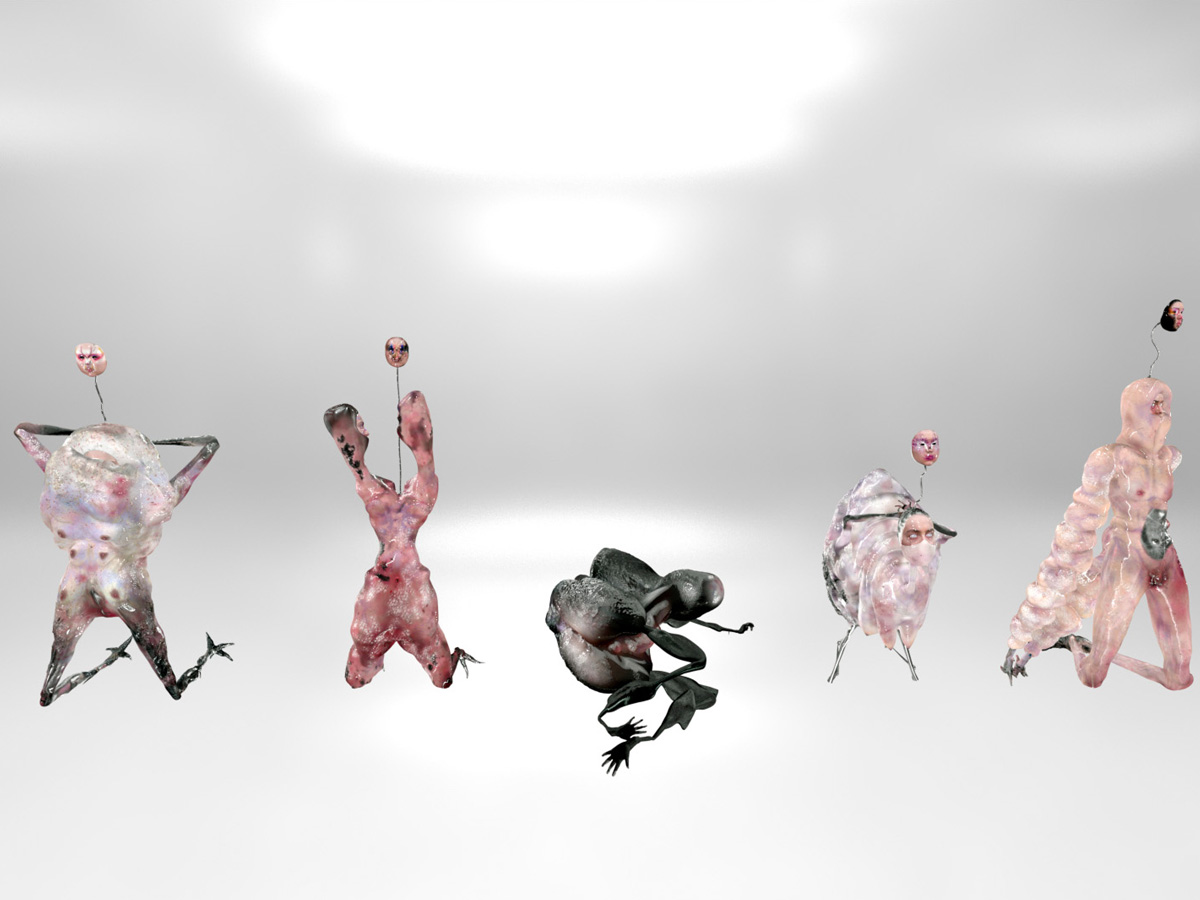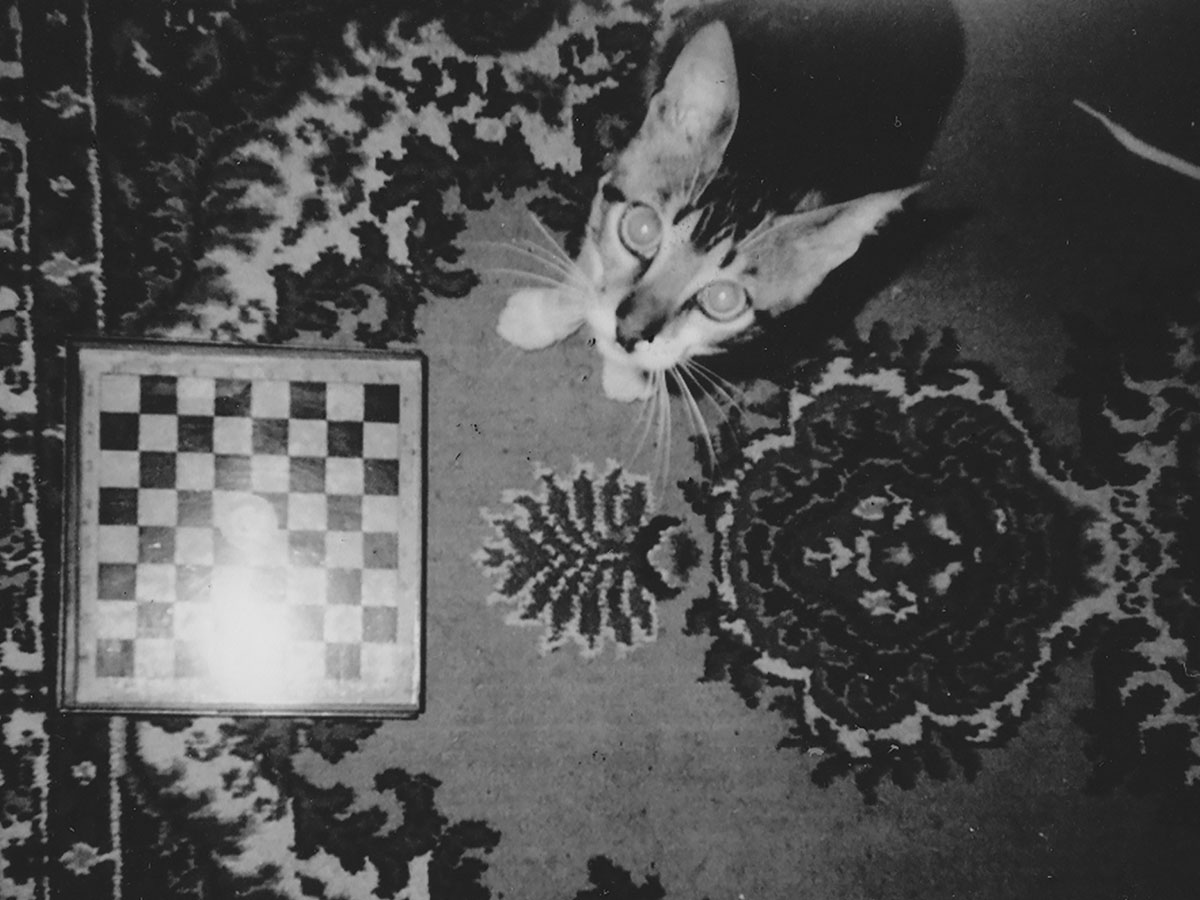
Scum Mutation
In this cyberpunk animation, four creatures wobble like marionettes in a black void. Bent, with bulging or thread-thin limbs, their skin turned inside out: human anatomy has mutated. An alien power tries to subdue them; police voices strike as if they were truncheons, but these vulnerable bodies start to fight back. Scum Mutation takes us into the battle zone of radical feminist protest—the film becomes a resounding beacon of reconquest.
“A film as an emancipatory response to rage. A depiction of societal, accepted violence—“our bodies are occupied territories”. But then these territories are reclaimed by complex bodies that are both fluid and incarnational; bodies that know how to fight back and form collectives; bodies that, despite all hostility and oppression, find the strength for a decisive liberation strike.
Scum Mutation by Ov is a physical experience, a cyberpunk animation that hits all senses. Resistance becomes visible, audible, perceptible, and tangible. In this empowering 10-minute ride, we can learn a lot, for example, how to locate ourselves in a supposedly bottomless space. We learn to process trauma through solidarity, and we learn to scream out—strategies of survival in an alienated world.
The film deals with police violence, rape, fear, post-traumatic stress disorder, and the (queer-) feminist radical response to intolerable conditions. Conceived as a testimony, Scum Mutation finds its allies in the viewers and listeners, who engage with invented digital bodies that nevertheless seem to be made of flesh and blood.” — Borjana Gaković
Scum Mutation was chosen by film and media scholar and curator Borjana Gaković, in response to This Day Won’t Last. Her work focuses on representations of history and the mediality of historiography, European cinema of the 1960s, women and film, and war and trauma in film. She regularly presents historical film programmes at cinemas and film festivals. She was the media spokesperson for the German Association of Municipal and Cultural Cinemas and was editor of the cinema quarterly Kinema Kommunal from 2017 to 2021. Since 2020, she has been part of the Programme and Selection Committee of DOK Leipzig.
In this urgent diary film about longing for freedom and community, the filmmaker reflects on the individual yet collective experience of growing up queer in Tunisia today.



